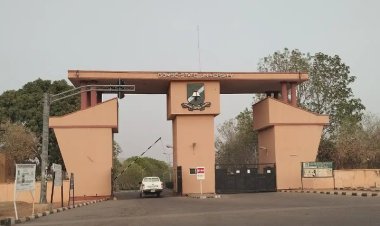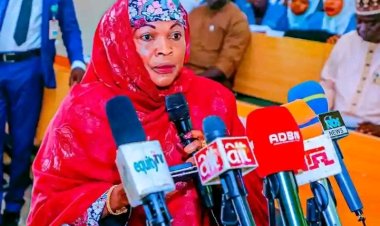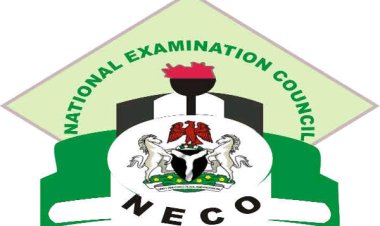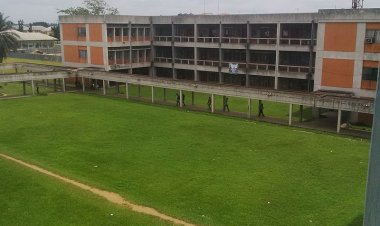Quality Education can End Cycle of Poverty – NMCN Registrar
The Secretary-General and Registrar, Nursing and Midwifery Council of Nigeria (NMCN), Dr. Faruk Umar Abubakar, said that by providing quality education to marginalized and disadvantaged communities, individuals can escape the cycle of poverty.
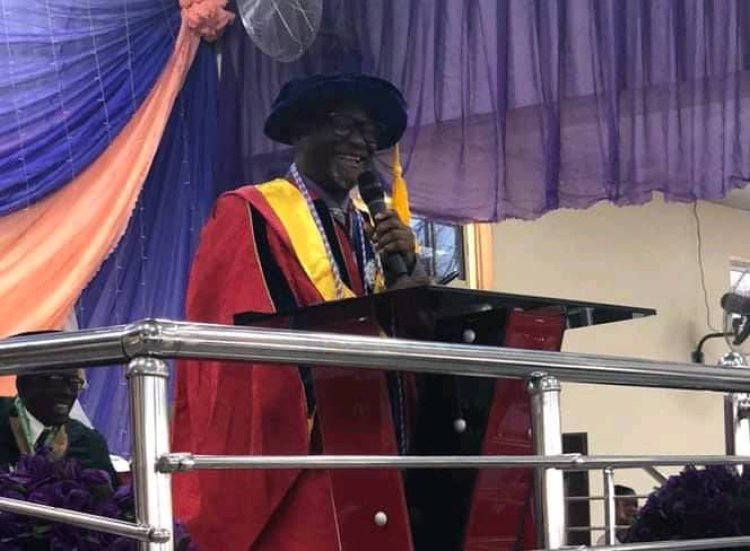
The Secretary-General and Registrar, Nursing and Midwifery Council of Nigeria (NMCN), Dr. Faruk Umar Abubakar, said that by providing quality education to marginalized and disadvantaged communities, individuals can escape the cycle of poverty.
Recommended For You:FG Insists on January Takeoff for Student Loan Scheme
Abubarkar said this while delivering the 13 convocation Lecture of Achievers University, Owo, in Ondo State entitled: “Education as a Tool for Social Change and Justice in Nigeria”.
This is coming as the Nursing and Midwifery Council of Nigeria, approved an increment in the admission quota from 175 to 250 for Nursing programme in the University.
The Council Registrar, Dr Faruk Umar Abubakar, said this at the induction ceremony for 194 Nursing graduates of the University into the Nursing profession.
Read Also:FG Defies ASUU, Reaffirms January 2024 as Commencement Date for Student Loan Scheme
Meanwhile, at the convocation lecture, Abubarkar, noted that with quality education, the marginalized and disadvantaged communities, individuals
“can gain the tools they need to improve their lives.
He added that this can also, promote tolerance and understanding between various ethnic, religious, and cultural groups in a multicultural nation like Nigeria.
The Registrar said all sectors of Nigeria’s economy must initiate reforms in education in various endeavors to achieve social change and justice in the country.
He noted that there is a connection between education and social change and education comes first before social change, and effective social change can only occur with sound education.
“Educational policies and initiatives must promote equity, inclusivity, and social justice and address Nigeria’s diverse society’s unique challenges and opportunities.
“All stakeholders should collaborate to ensure quality education for all the country’s citizens. Education equips individuals with knowledge, skills, and critical thinking abilities, enabling them to make informed choices and advocate for their rights.
“By providing quality education to marginalized and disadvantaged communities, individuals can escape the cycle of poverty and gain the tools they need to improve their lives.
“Education can promote tolerance and understanding between various ethnic, religious, and cultural groups ina multicultural nation like Nigeria.”
Read Also:FG inaugurates ₦2.8bn TETFund projects in Nnamdi Azikiwe...
Abubakar said that, to lessen the possibility of ethnic and religious conflicts, schools can play a part in teaching the values of diversity, respect, and unity in a multicultural society.
The Acting Vice- Chancellor, of the institution Professor Omolola Irinoye, applauded the Pro-Chancellor and Chairman of Governing Council; Dr. Bode Ayorinde for his commitment and investment in the university to secure better future Nigerian youths.
Did You Miss:FG inaugurates TETFUND projects in Ebonyi varsity
Prof Irinoye, called on other well meaning Nigerians to borrow a leaf from Pro-Chancellor by contributing to the development of education in their communities, adding that, an investment in education is an investment in the future of the country.
According to her, an investment in education is an investment in the future of the country.

 Akeelah
Akeelah 